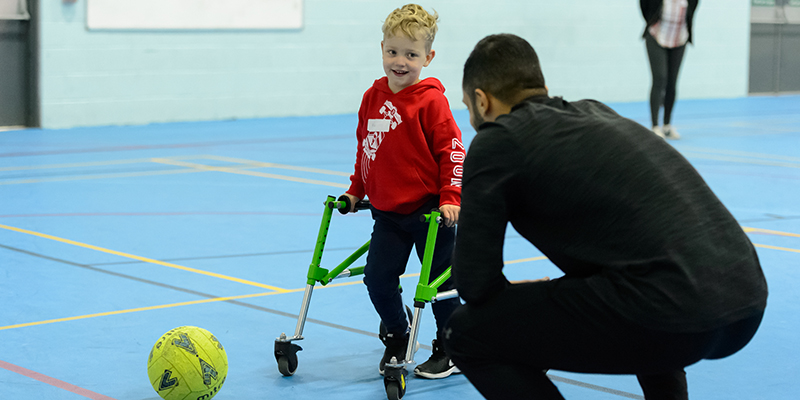
Guidance from the UK Chief Medical Officers (CMOs) recommends daily levels of physical activity, to support disabled children and young people to improve their physical and mental health throughout their lives.
Regular physical activity has physical and mental health benefits for people of all ages. However, children and young people with disabilities are less likely to be active than non-disabled children, which can lead to health disparities, and these may widen as they become older.
Specific benefits that disabled children and young people can gain from physical activity include improved confidence and concentration, meeting new people and stronger muscles and improved motor strength.
The guidelines recommend disabled children and young people:
- undertake 120 to 180 minutes of aerobic physical activity per week at a moderate-to-vigorous intensity – this can be achieved in different ways (for example, 20 minutes per day or 40 minutes 3 times per week) through activities such as walking or cycling
- complete challenging, but manageable, strength and balance activities 3 times per week which are particularly beneficial for muscle strength and motor skills – for example, indoor wall climbing, yoga, and modified sports such as basketball or football
- when first starting to exercise, build up slowly to avoid injury
- break down their exercise into bite-size chunks of physical activity throughout the day to make it more manageable.
Chief Medical Officers’ infographic
An infographic has been created explaining the physical activity needed for general health benefits for disabled children and disabled young people.